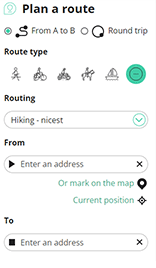Source: Pascal Brackman
These two diagrams give a simple representation of how the dolina of Dydima came about.
The first diagram shows how, via tectonics, blocks move up and down opposite each other and create closed depressions. That is called a "horst and slenk system".
In most circumstances, those closed depressions are filled with water and the lakes break open the closed depression via draining rivers. But in karst areas like this, things are a bit different. The water flows through fractures in the limestone underground outside the closed depression. And that drainage dissolves the limestone into caves. These caves collapse after a while and form small sinkholes like you see here in the wall north of the village of Didyma, and in the sinkhole of Agios Georgios.
Meanwhile, gravel, sand and clay continues to wash further down the mountain sides into the depression. There it forms thick rich soils. These thick soils provide fertile fields allowing rich grain fields in the Doline van Didyma. A large grain silo is a clear indication what these fertile fields provide.
The water is held up like a sponge by all that gravel mixed with clay that is collected on the bottom of the depression. That "sponge" provides more than enough moisture for most of the year to allow the crops to grow well. You will also notice that in the village itself one well can be found next to the other.
That "sponge of water" also continues to cause a chemical dissolution reaction underground that causes the limestone to sink further and deepen the depression.
The bottom of the Doline is now about 150 m above sea level. In Evvia there are examples of dolines that go all the way down almost to sea level. Those waters hardly drain anymore, and in that case you get swamps instead of well-drained soils like here.
![]() | | Public | Danish • Dutch • French • German • Italian • Spanish
| | Public | Danish • Dutch • French • German • Italian • Spanish

Select one of the most popular activities below or refine your search.
Discover the most beautiful and popular trails in the area, carefully bundled into appropriate selections.
Source: Pascal Brackman
Select one of the most popular categories below or be inspired by our selections.
Discover the most beautiful and popular attractions in the area, carefully bundled in appropriate selections.
Source: Pascal Brackman
With RouteYou, it's easy to create your own customised maps. Simply plot your route, add waypoints or nodes, add places of interest and places to eat and drink, and then easily share it with your family and friends.
Route planner

<iframe src="https://plugin.routeyou.com/poiviewer/free/?language=en&params.poi.id=8614817" width="100%" height="600" frameborder="0" allowfullscreen></iframe>
© 2006-2026 RouteYou - www.routeyou.com